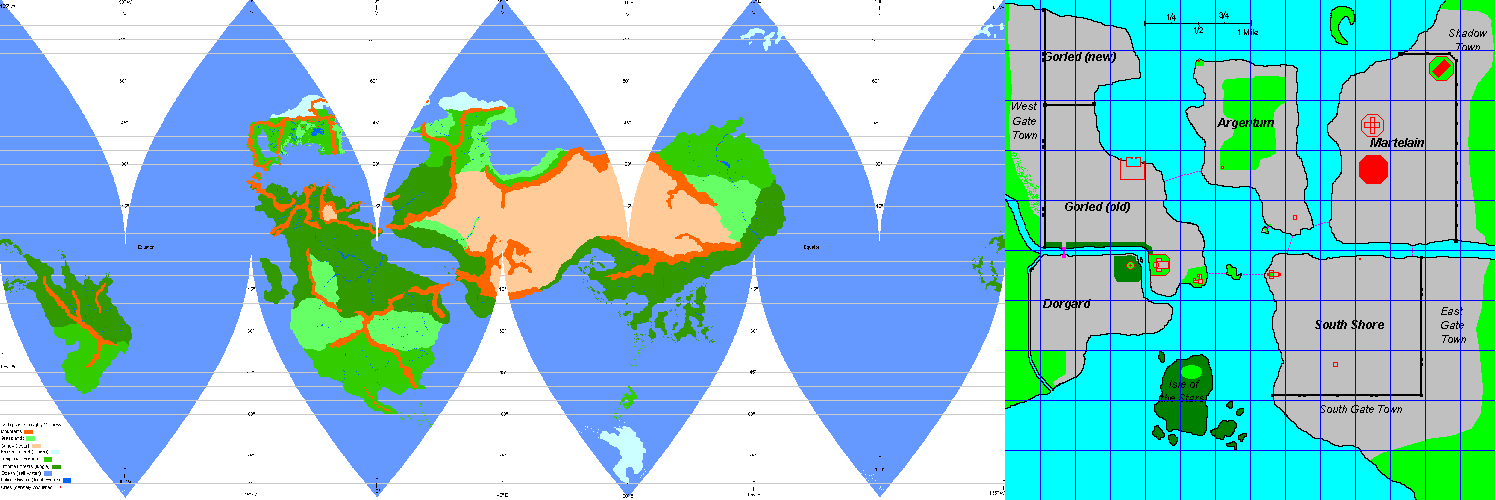Shamanism
Shamanism
The concept of Totemism or Shamanism dates back to the earliest of times and oldest of cultures. It is in essence the interaction of beings in the worldly realms of existence with animal and other nature spirits from the Menagerie, Astra, or Spirit World. While this system of beliefs is most common among barbaric cultures, where technology is at a minimum, it can still be found present in some rare advanced cultures. This set of beliefs are slightly different than Druidry, although the underlying principles are similar. The Druids will often work closely with Shamans and Manito. Shamans are the "Priests" or "Medicine (wo)men" who can contact and interact with these spirits in one form or another. These people have special skills and abilities that allow them to interact with these nature spirits in a way that normal beings cannot. Note: For Rolemaster, treat Shamans as "Animists" as per the RMSS rules, with the base lists listed for this profession, as well as being able to choose additional lists from the nature and other appropriately based lists from the Channeling Companion. Or in the newer RMU version of the rules, they can be treated as Druids (but without the affiliation to the Druidical College) or as Clerics that focus on nature related spell lists as part of their Base Lists. Note: For Fudge and Dominion Rules, contact the GM, as these will involve some special design work and specifics based on the characters area of expertise and "totem". Using Fudge, involves developing appropriate skills based on the specifics of the characters culture and the totem spirit. With Dominion Rules, a slightly altered version of the Priestcraft rules is used as appropriate for the characters culture and totem spirit. Note: For use with the D20 Systems use the rules covering Clerics, with an appropriate (only one of the following, based on the characters "totem") "Domain" list of Spells: Air Domain, Animal Domain, Earth Domain, or Plant Domain. Remember that the Druid class in the D20 system is reserved for those who are followers of Druidry (despite the similarities that exist between the two groups). Not sure how or if the concept of a Manito will even work with the d20 systems, so it is up to DM' sto determine if and how to handle such a being.
Manito are a special (and exceedingly rare) group of characters or NPC's within this setting. They are beings (usually human, but not always) who have bonded with a totemic spirit, and have thus become more than the sum of their human and animal spirit that shares their body. Manito can also result from the combination of humans and non-animal spirits of nature, such as seasonal spirits, plant spirits, etc. These special beings are not the same thing as Shamans but yet they have very specialized abilities. They have a human form, but also have the senses and abilities of their totem spirit. Thus, an Owl Manito will have a keen sense of hearing and be able to move much more quietly than normal, as well as having excellent night time vision, and probably be a "night person". Many Manito eventually learn to be able to take on the form of their totem spirit (although this skill is tricky and uses quite a bit of personal energy (or "Animus") to accomplish). These people often times take on qualities and vaguely the appearance of their totem spirit (in the example above, an Owl Manito may develop large peering eyes, and necks that can turn much further than is normally humanly possible, or may develop hair coloration similar to an owl). Note that in Rolemaster that this involves a character customization that must be approved by the GM and will have a considerably high DP (Development Point) cost associated with it at Character Creation.
Manito characters will need to be developed on an individual basis based on the specifics of the culture and the character, as well as the totem spirit that shares the characters physical body. More detail will be added to this page concerning specifics of various groups that fall into this broad category of beliefs. In terms of Rolemaster attaining this quality will involve using "Background Options" to purchase as a specialized "Talent". If using Fudge this can be purchased with Supernormal Power or Gifts (the exact cost will be based on the special abilites that are taken by the character based on the totem. Using the D20 System will require the use of multiple "Feats" to purchase the abilities associated with becoming a Manito. Using Dominion Rules involves a specialized alteration to the Priestcraft skills, with the "Deity' that channels its power through the character actually being the totem spirit that inhabits the characters physical being.
The goal of anyone with this belief structure of course is to maintain the balance of nature. When it comes to the forces of "Good" vs. "Evil", think of this as a neutral stance if the RPG system you are using forces you to use an "Alignment" system for "guidance" as to how you should "play" your character. That is why it is common within somewhat barbaric cultures, as it is a way for them to explain and live within the confines and laws of Nature. The two most powerful of these nature spirits are "Cernuous" (or "the Horned God") and "Gaia" (or the "Ærnth Mother").
More details to come later...
Return to Religions


Comments